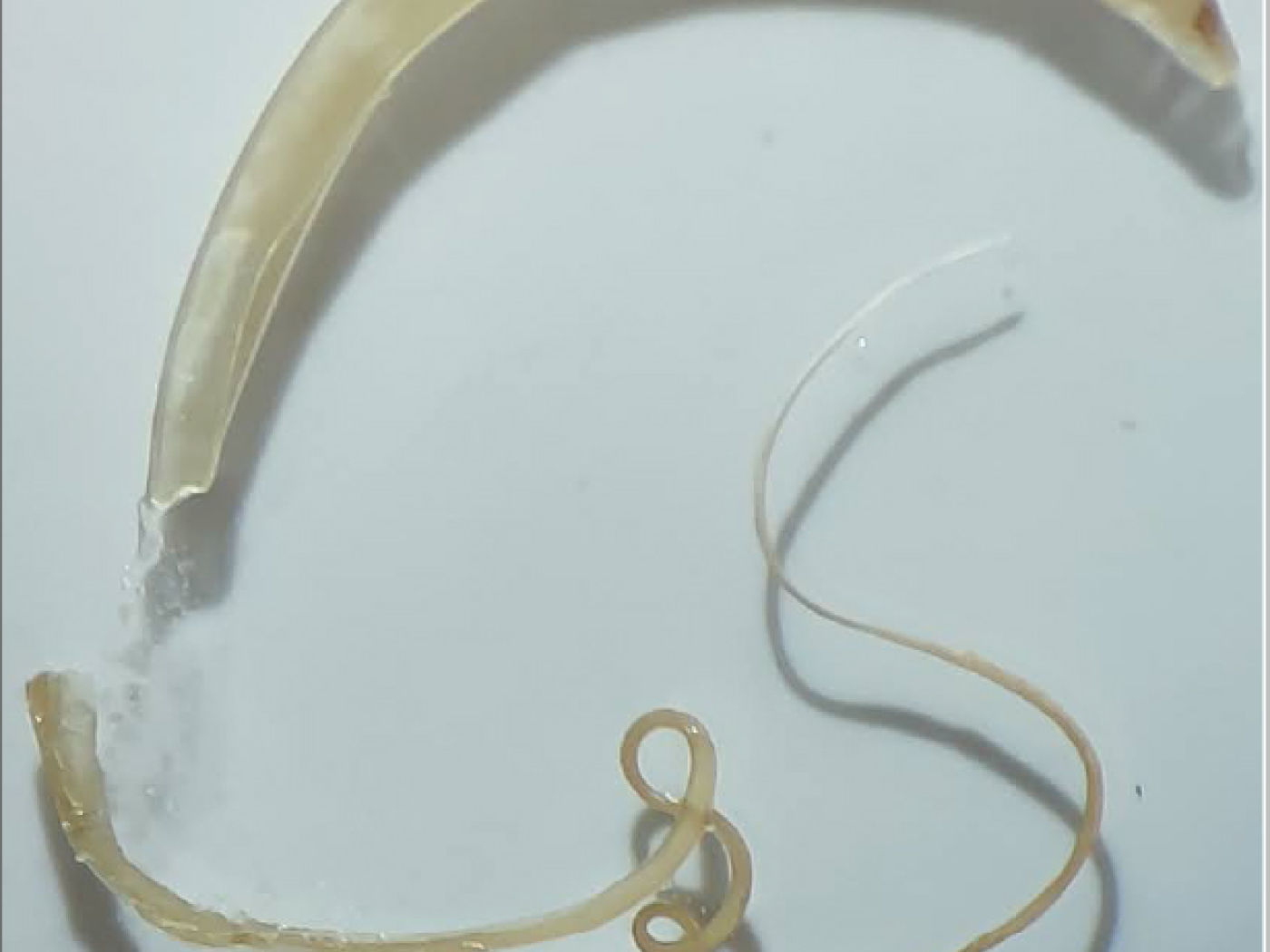
Swiss Tropical Institute discovers new parasitic worm species

A research team from the Swiss Tropical and Public Health Institute (Swiss TPH) has discovered a new parasitic worm species in Côte d’Ivoire. The Natural History Museum Basel accepted the first two preserved specimens on Thursday.
+Get the most important news from Switzerland in your inbox
As the species known as Trichuris incognita responds much less well to medical treatment, new drugs now need to be developed. An infection with the parasite can lead to health problems such as abdominal pain, diarrhoea and anaemia, as was reported at a media conference.
With the transfer to the museum’s collection, the discovery is now officially recognised in accordance with international rules on scientific naming. The species cannot be visually distinguished from the familiar whipworms. The worm has been under the radar of research for many years, said Jennifer Kaiser, Professor at Swiss TPH.
TPH is working on a new drug
Researchers initially assumed that the worms in Côte d’Ivoire were resistant. But then it turned out that it was a previously undiscovered species, as TPH researcher Max Bär said. He took stool samples in a village and proved the presence of the new species as part of his doctoral thesis.
+ Swiss institute fighting to eliminate leprosy
One of the two preserved worms has now been immortalised in the collection as a so-called type specimen. These are reference animals for the first description of a new species. The preservation of such types is therefore very valuable for science, explained Christian Kropf, Head of Biosciences at the museum.
According to the TPH, whipworm infections affect an estimated 500 million people worldwide. The institute is currently working with the pharmaceutical company Bayer on developing a drug that could also be effective against Trichuris incognita.
Translated from German by DeepL/jdp
We select the most relevant news for an international audience and use automatic translation tools to translate them into English. A journalist then reviews the translation for clarity and accuracy before publication.
Providing you with automatically translated news gives us the time to write more in-depth articles. The news stories we select have been written and carefully fact-checked by an external editorial team from news agencies such as Bloomberg or Keystone.
If you have any questions about how we work, write to us at english@swissinfo.ch

In compliance with the JTI standards
More: SWI swissinfo.ch certified by the Journalism Trust Initiative




























You can find an overview of ongoing debates with our journalists here . Please join us!
If you want to start a conversation about a topic raised in this article or want to report factual errors, email us at english@swissinfo.ch.